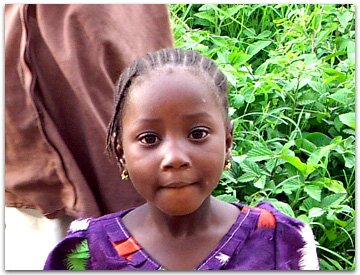PAMOJA Organisational Structure
 Every Reflect practitioner in Africa is considered a member of PAMOJA; membership emerges from the National level Reflect Network.
Every Reflect practitioner in Africa is considered a member of PAMOJA; membership emerges from the National level Reflect Network.
National PAMOJA
Reflect practitioners form National PAMOJA in their respective countries. These National PAMOJAs are inter-institutional, made up of organizations practicing reflect (or committed to it), but otherwise are not standardized. They have different names and vary from being formal to informal. Each National PAMOJA selects one country representative to the PAMOJA council.
PAMOJA Council
The PAMOJA Council is the supreme decision making body in Pamoja. It is formed by one nominated representative from each of the National Reflect Forums in Africa. Key resource people (e.g. the present sub-regional coordinators) also participate but do not have voting rights. The Council meets once a year in different countries. It is responsible for:
- Establishing priorities / strategic planning,
- Approving operational plans for the Secretariat,
- Determining human resource needs etc
The Council is the legal employer of the Secretariat staff, though they work with a human resources sub-committee of the Council (2 or 3 members) to recruit, establish terms and conditions and make basic decisions (e.g. regarding removal, changes in conditions etc).
The Pamoja Council has at least four permanent sub-committees (each of 2 or 3 people) to cover Human Resources, Programmes, communication and Finance. Other sub-committees will be formed according to demand / interest.
The Council chair is Mr. Elijah Marambo and his vice is Ms. Aissata Dia
Board of Trustees
This is a unique Board with both advisory and Executive role to PAMOJA Secretariat, and has three major functions – legal financial and personnel support. The Board, which meets three times a year, advises on strategic direction of PAMOJA and its management and also supports fundraising and PAMOJA profile rising.
A Board of Trustees is in the host country of the secretariat with three major functions – legal, financial and personnel support. Ultimate accountability for the finances of Pamoja lies with the Chair of the Board. The Council Chairperson in liaison with the Board Chair Person formally approve plans and budgets and do have the power to veto them if not financially viable or legally acceptable (in which case the Secretariat and the Finance and Programme committees have to revise and re-present). The Treasurer of the Board is a co-signatory on cheques for any significant expenditure and has a sub-committee of 2/3 people from the Council to assist in financial matters. The Board meets 4 times a year and submits short reports on finance, human resources and legal questions to the Pamoja Council meetings once a year.
Note: The first Board was formed with high profile and experienced people from across Uganda, including a legal expert, a development expert, a finance expert, an HR expert and a high level government Minister.
Members on the board
Dr Patrick Wakida (PhD) - PAMOJA BOT Chairperson
Regional Project Manager; Pathfinder International
Mr. Nicolas Mugumya - PAMOJA financial advisor,
Deputy executive director, Finance and Administration, The AIDS Support Organisation (TASO)
Prof. Anne Katahoire (Phd) - Pamoja Programs Advisor
Director Child Development Centre, Makerere University
Dr. John De Conic (Phd) - Pamoja Human Resource Advisor
Development Consultant
Ms. Joyce Kadowe - Pamoja Bot Member
Gender And Advocacy Coordinator, Uganda Aids Commission
Mr. Elijah Otiende - Pamoja Council Chairperson And Ex-Official Bot Member
Mr. Grace William Maiso - Bot Secretary
Pamoja Newtwork Facilitator - Head Of Secretariat
PAMOJA Secretariat
Initially based in Kampala, Uganda, but may in future rotate to other countries. The Secretariat is responsible for the smooth operations and overall management of the Network. It reports to the Board and the Council to whom it is accountable. It currently has a core staff of four: A Facilitator, A Communications / Shared Learning Coordinator, An Administration / Finance Officer and Project specific staff. The secretariat as an executing arm offers the following:
- Provides administrative and technical support to the network.
- Ensures smooth communication and information exchange within the network and with others.
- Proposes work plans and budgets and presents them to the council for approval.
- Promotes best principles and practices as they emerge from the needs of the practitioners.
- Represents the network in regional and international forums and networks.
- Undertakes / facilitates research / documentation of studies on areas identified by the network.
- Builds capacity among team members.


